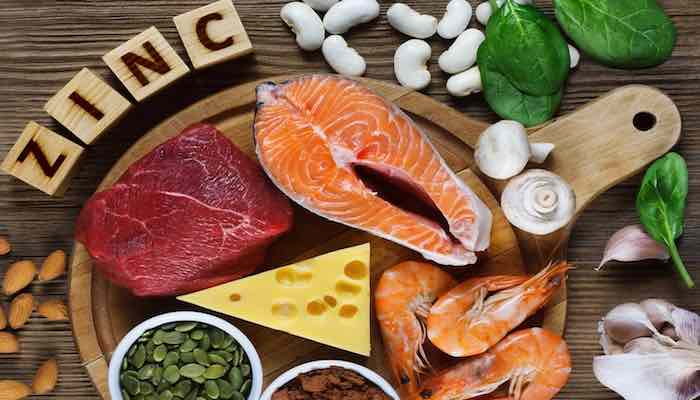A modest 4 milligrams of extra zinc a day in the diet can have a profound impact on cellular health that helps fight infections and diseases
Zinc- An Important Nutrient

You might know that zinc, element number 30 on the periodic table, is used for galvanizing iron and steel. Here are some things you might not know.
Zinc is ubiquitous in our bodies and facilitates many functions that are essential for preserving life. It plays a vital role in maintaining optimal childhood growth and in ensuring a healthy immune system. Zinc also helps limit inflammation and oxidative stress in our bodies, which are associated with the onset of chronic cardiovascular diseases and cancers.
1Zinc had been identified as one of the most important essential trace metals in human nutrition and lifestyle. It is not only a vital element in various physiological processes, it is also important in the prevention of many diseases. The adult body contains about two to three grams of zinc. It is found in organs, tissues, bones, fluids and cells. A number of vital human physiological processes have a relationship with zinc including: the brain, cardiovascular system, liver, pregnancy, diabetes, endocrine system, healing and pneumonia. 2
It saves lives. In developing countries, diarrhea is a major cause of death among children under 5. But cheap zinc tablets can help stave off deadly dehydration. Combined with oral rehydration salts, it can prevent 90 percent of those fatalities.
It saves crops. Zinc-enriched fertilizers boosted wheat and barely production in Turkey by 55 percent. 3
Zinc deficiency affects about 2 billion people worldwide, including an estimated 40 percent of the elderly in the United States who are also among the most likely Americans to end up in an intensive care unit. 4
Severe zinc deficiency will cause your skin to fall off, your ability to taste to diminish, and your immune system to function less well. Thus, zinc supports skin and immune health as well as taste function. 5
The recommended daily allowance for zinc ranges from 8 to 11 milligrams for most adults. Red meat and poultry provide the majority of zinc in the American diet. Other food sources include beans, nuts, some shellfish, whole grains, fortified cereals, and dairy products. The nutrient is also available in supplement form. 4
A recent study shows that a modest 4 milligrams of extra zinc a day in the diet can have a profound impact on cellular health that helps fight infections and diseases.
1
Then there's the on-going question of whether zinc cures colds.
Joseph Stromberg reports that a number of studies in which patients who'd just come down with the common cold were given zinc supplements, and compared to those who'd been given a placebo. This showed that the mineral significantly reduced the duration of the cold and also made symptoms less severe.
6
By contrast, Cecil Adams provides a lot of information that questions whether zinc has any positive effect on the common cold. He states, “When reviewers looking at the some basic data come up with three different ideas about the right way to use the stuff, well, let's be charitable, there's plenty of room for doubt.”
7
Take your pick—but regardless make sure to get enough zinc in your diet.
References
- “Zinc eaten at levels found in biofortified crops redeuces wear and tear on DNA,” sciencedaily.com, January 3, 2017
- Kuljeet Kaur et al., “Zinc” the metal of life,” Comprehensive Reviews in Food Science and Food Safety, 13(4), 358, 2014
- Bryan Lufkin, “3 smart things about zinc,” wired.com, December 3, 2013
- Daren Knoell, “Zinc helps against infection by tapping brakes in immune response,” researchnews.osu, February 7, 2013
- David Seres, “The danger of loosely regulated supplements,” acsh.org, March 30, 2017
- Joseph Stromberg, “Five vitamins and supplements that are actually worth taking,” smithsonianmag.com, February 14, 2014
- Cecil Adams, “What's the latest on whether zinc cures colds?”, straightdope.com, September 26, 2014
Jack Dini -- Bio and
Archives |
Comments
Jack Dini is author of Challenging Environmental Mythology. He has also written for American Council on Science and Health, Environment & Climate News, and Hawaii Reporter.
